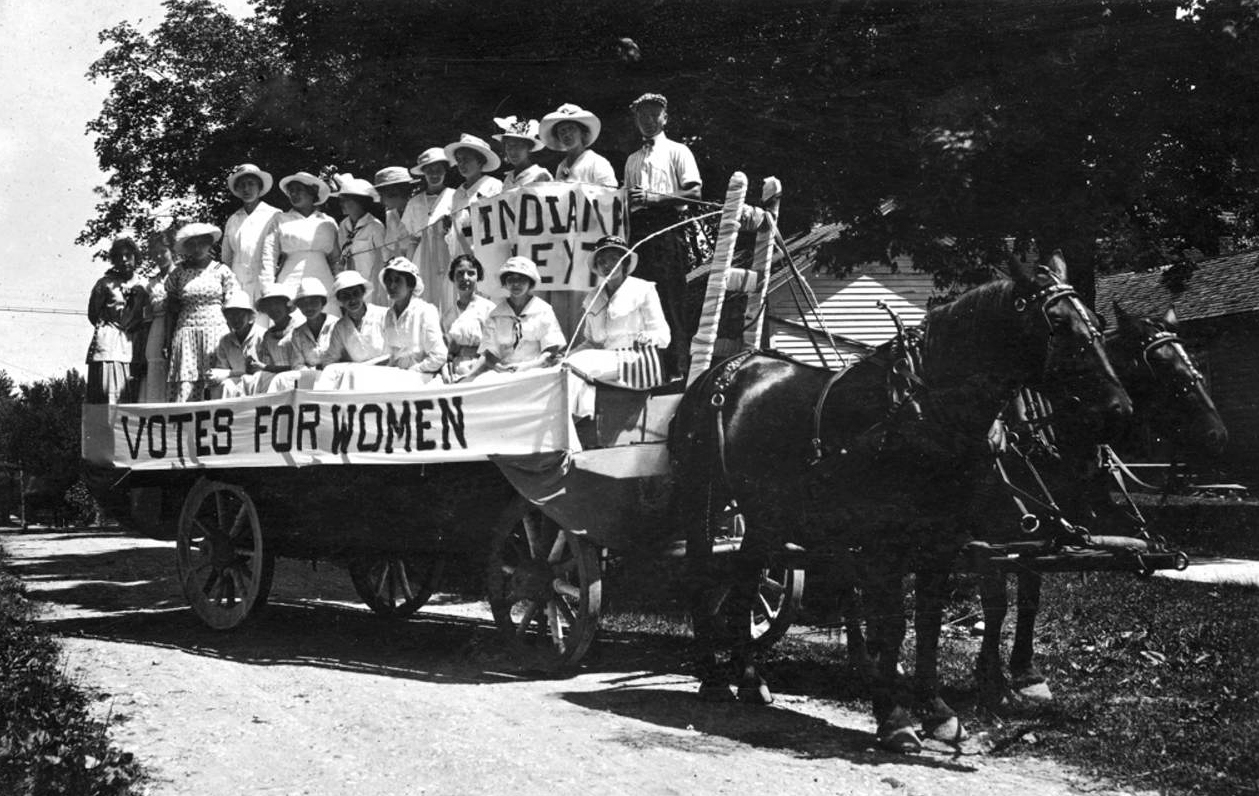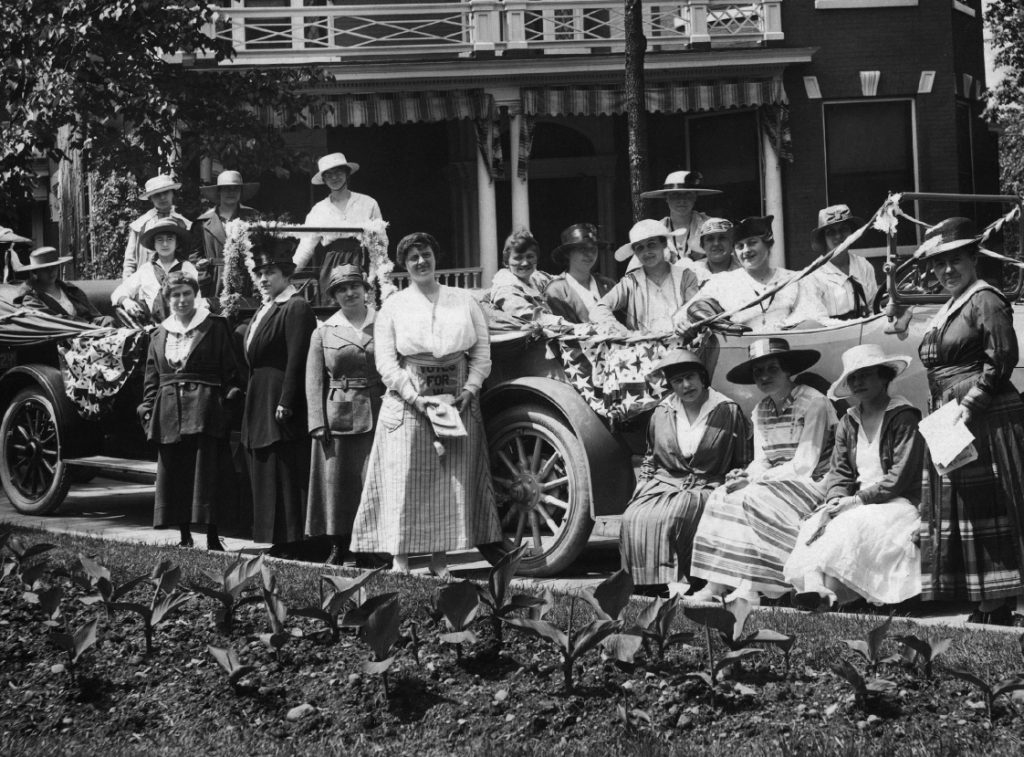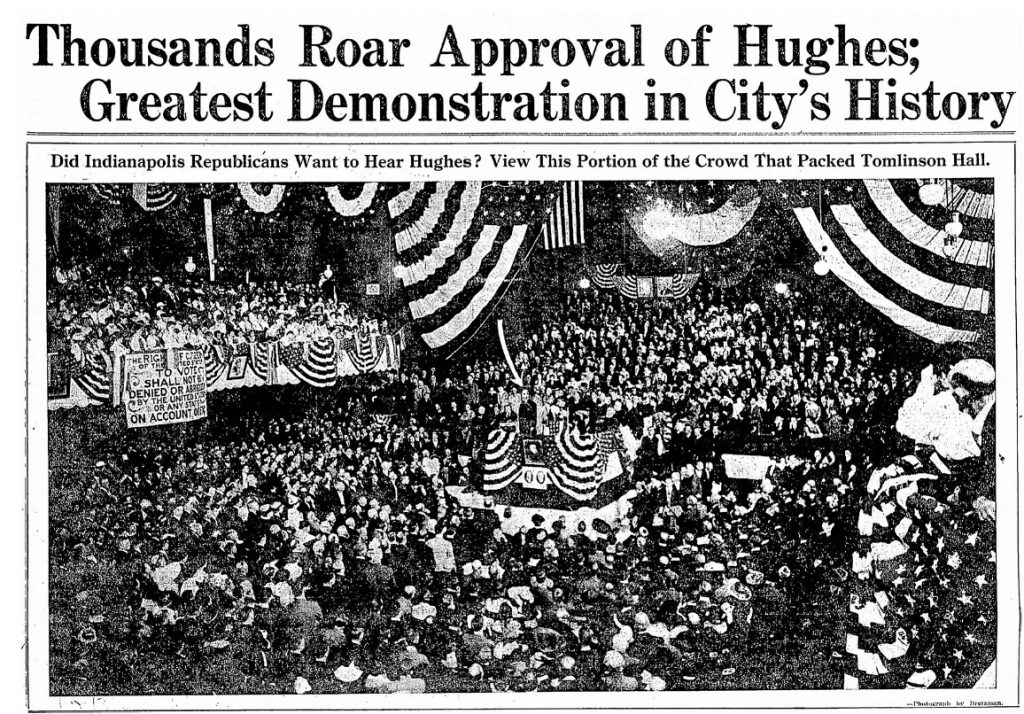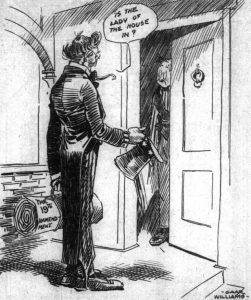
Plan your visit
Q&A With Anita Morgan: The Woman Suffrage Movement in Indiana
April 13, 2020

Prohibiting states and the federal government from denying citizens the right to vote based on sex, the Nineteenth Amendment was passed by Congress on June 4, 1919, and formally ratified on August 26, 1920. To commemorate the centennial of women winning the right to vote, the IHS Press recently published “We Must Be Fearless”: The Woman Suffrage Movement in Indiana.
Written by Anita Morgan, a senior lecturer in history at Indiana University–Purdue University at Indianapolis and the former president of the Indiana Association of Historians, the book examines the struggles and triumphs of a myriad of Hoosier women black and white, rich and poor, urban and rural who banded together to seek equal rights with men at the ballot box.
Morgan took some time to answer questions about her book:
What inspired you to take on this project?
I first thought of this project twenty years ago, but always thought that someone else would complete the research. While other historians researched parts of the Indiana woman suffrage movement before 1920, no one tackled telling the story of the entire sixty-nine years of the movement’s history. The state bicentennial and the centennial of the Nineteenth Amendment led me to write the book. Anniversaries prod historians to do the work that needs to be done.

What was most valuable to you in doing your research? Was there a particular collection that proved crucial in your research?
What a good question. This project could not have been completed with this much detail without the digitization of newspapers by newspapers.com and by the Hoosier State Chronicles housed at the Indiana State Library. Newspaper stories fill in the gaps where official documents from suffrage organizations and suffragists’ letter collections are not complete. In the time since I started writing the book, the Indiana Historical Society and the Indiana State Library have digitized more women’s records, which will be helpful to future researchers.
As far as specific collections, the Grace Julian Clarke collection at the Indiana State Library and the League of Women Voters of Indiana (contains original Woman’s Franchise League minutes) collection, the Woman’s Franchise League of Indiana collection, and the Indiana Woman’s Suffrage Association Record Book, all found at the Indiana Historical Society, are necessary to any work on the Indiana woman’s suffrage movement.
In doing your research, was there an organization or individual that particularly caught your fancy? If so, why?
I will cheat on this one and pick two people. Grace Julian Clarke was her father’s political heir and if she had been a man, she most likely would have served in the state legislature or in Congress. Her extensive collection at the ISL covers all facets of her life and of the woman suffrage movement. She was everywhere and joined everything.
The other woman is Sara Messing Stern. Her letters are full of energy and information about several women’s organizations, including the Federation of Clubs, the Woman’s Franchise League, and the Council of Jewish Women. Stern and Clarke had seemingly endless energy and drive that I admire.
If I had to pick an organization, it would be the Indiana Woman’s Rights Association/Indiana Woman’s Suffrage Association. It had to be difficult to maintain a group for more than thirty years in the nineteenth century with difficulties traveling around the state and organizing everything with nothing more than the mail (and later telegrams). They had to be hardy and determined to keep the group going.

What is different in your interpretation of the woman’s suffrage movement in the state that other authors neglected to cover?
No one had really looked at the African American woman’s suffrage organizations in any detail and no one had really looked at the extent to which recent immigrants, or the daughters of immigrants, were so heavily involved in the movement. Another aspect would be the number of teachers and physicians who took leading roles. Digitized newspapers proved to be essential to uncovering the importance of women who had not been fully recognized as important to the Indiana suffrage movement.
How does Indiana compare to other states when it comes to dealing legislatively and legally with the right to vote for women?
If Indiana politicians had passed suffrage legislation in 1883 when they had the opportunity to do so, Indiana would have been the first state with woman suffrage (instead Wyoming was the first in 1890). Indiana politicians enacted woman suffrage legislation twice before 1920, but each time other men, their constituents, rallied forces to beat back the legislation.
We really do not know much about why politicians enacted suffrage or why other men wanted it taken away—that needs to be much more closely examined. Indiana lagged behind other states east of the Mississippi River, such as Illinois, which enacted suffrage legislation in 1913, and New York in 1917. The men who supported suffrage laws in Indiana need to be studied.

Do you plan to tackle the history of women in the state up to the present day?
No. There is still a lot of work to do on women up to 1920—my book has started that story, not completed it. I will leave post-1920 to other historians.
Is there one person from your book that you believe deserves a full-scale biography?
Actually, there are three. Grace Julian Clarke has left a wealth of information behind about her life and about many women’s clubs and suffrage groups in the state. While one master’s thesis has been completed on her work with women’s groups in the 1910s, more work remains to be done.
Luella McWhirter’s collection at the Lilly Library at Indiana University Bloomington catalogs her work in the Woman’s Christian Temperance Union and in various suffrage groups. She also served on the Board of Directors of her husband’s bank. Like Clarke, her work encompassed much more than suffrage.
There is already a book about Helen Gougar, but with the digitization of newspapers there is a new trove of information about her that needs to be examined. A closer look at all these women will continue my work of placing Hoosier women more fully in the history of the regional and national suffrage movements. I would also love to see a book composed of chapter-length biographies of Indiana suffragists because there are so many who deserve the recognition.









